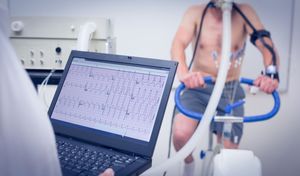Physiology, the captivating study of how our bodies function and interact, unveils the intricate mechanisms that keep us alive and thriving. Imagine your body as a well-orchestrated symphony, where each cell, tissue, and organ plays a crucial role in maintaining harmony.
Delving into the realm of physiology enables us to comprehend the inner workings of this symphony, uncovering the secrets behind our breath, heartbeat, digestion, and beyond.
What is Physiology?
At its core, physiology can be described as the scientific exploration of how living organisms operate. It encompasses a diverse range of disciplines, from cellular and molecular interactions to whole-body systems.
The discipline goes beyond mere description, aiming to decipher the underlying principles governing physiological processes and their adaptations. Through this holistic approach, physiology sheds light on how our bodies respond to various internal and external stimuli, ensuring our survival and optimal functioning.
The Historical Journey: Tracing the Roots of Physiology
The roots of physiology trace back to ancient civilizations, where early scholars began unraveling the mysteries of life. The renowned Greek physician Hippocrates, often called the father of medicine, laid the groundwork by emphasizing the importance of observing and understanding bodily functions.
As centuries passed, thinkers like Galen contributed to the field, paving the way for the systematic study of anatomy and function. Fast forward to the modern era, and pioneers like Claude Bernard and Johannes Müller solidified physiology as a distinct scientific discipline.
Key Principles of Physiology
Homeostasis: The Art of Balance
At the heart of physiology lies the concept of homeostasis – the body's remarkable ability to maintain stable internal conditions despite ever-changing external environments. This delicate balance ensures that variables such as temperature, pH, and electrolyte levels remain within optimal ranges. Whether you're running a marathon or lounging at home, your body's mechanisms work tirelessly to uphold this equilibrium.
Cellular Communication: Signals of Life
Communication is essential in physiology, and cells converse through intricate signaling pathways. Hormones, neurotransmitters, and other signaling molecules act as messengers, transmitting vital information between cells and organs. This coordinated communication network orchestrates processes like growth, metabolism, and immune responses.
Energy Metabolism: Fueling the Machine
Just as an engine requires fuel, our bodies need energy to function. Cellular metabolism converts nutrients into energy-rich molecules like ATP, powering a myriad of processes. From digesting a meal to flexing a muscle, energy metabolism fuels every action we take.
Exploring Physiological Systems
The Nervous System: Command and Control
Picture the nervous system as the body's communication superhighway, allowing lightning-fast messages to zip between different parts of the body. At its helm is the brain, orchestrating movements, thoughts, and emotions. The spinal cord plays a crucial role, in relaying messages and coordinating reflex actions. Peripheral nerves extend from this central command, transmitting sensory information and enabling us to interact with the world.
- Central nervous system vs. peripheral nervous system.
- Sympathetic and parasympathetic divisions: Balancing the body's responses.
The Cardiovascular System: Pumping Life
Ever wonder how your heart manages to tirelessly beat around 100,000 times a day? The cardiovascular system, composed of the heart and blood vessels, is responsible for transporting oxygen, nutrients, hormones, and waste products throughout the body. The heart's rhythmic contractions create a pressurized highway that ensures every cell receives what it needs to thrive.
- Blood vessels: Arteries, veins, and capillaries working in harmony.
- Circulation: The journey of blood through the body.
Respiration: Fuel for the Fire
Breathing isn't just about taking in oxygen and releasing carbon dioxide; it's a fundamental process that fuels the body's energy production. The respiratory system, consisting of the lungs and airways, facilitates the exchange of gases between the body and the atmosphere. As you inhale, oxygen enters the bloodstream to nourish cells, while carbon dioxide is expelled during exhalation.
- Gas exchange in the alveoli: Where oxygen meets the bloodstream.
- The role of red blood cells: Oxygen transportation specialists.
Digestion and Metabolism: From Bite to Energy
Digestion is like a carefully choreographed play that transforms the food we eat into energy and essential nutrients. The digestive system breaks down complex molecules into smaller components that can be absorbed into the bloodstream. Once absorbed, these nutrients fuel metabolic reactions, which power everything from muscle contractions to maintaining body temperature.
- Enzymes: Nature's catalysts for breaking down food.
- Metabolism: Unleashing energy from carbohydrates, fats, and proteins.
Musculoskeletal System: More Than Just Movement
From the graceful pirouettes of a dancer to the powerful strides of an athlete, the musculoskeletal system provides the foundation for movement. Bones give our bodies structure, while muscles pull the strings to create motion. But this system is more than just a set of levers; it also protects vital organs and stores minerals that play a role in numerous physiological processes.
- Joints: Where bones meet and allow for various types of movement.
- Muscle types: Striated, smooth, and cardiac muscles in action.
Unveiling the Intricacies of Adaptation
Adaptation is a cornerstone of physiology, enabling organisms to thrive in diverse environments. Through physiology, we gain insight into how our bodies acclimate to changes. Whether it's adjusting to high altitudes, coping with extreme temperatures, or recovering from an illness, our physiological responses highlight the remarkable resilience of human beings.
The Intersection of Physiology and Health
The profound insights gained from physiology extend beyond curiosity-driven research. They offer practical applications in the realm of medicine and health. Physicians leverage physiological knowledge to diagnose, treat, and prevent ailments. From understanding the mechanisms of disease to developing tailored treatment plans, physiology plays a pivotal role in modern healthcare.
Conclusion:
In a world filled with remarkable discoveries, the study of physiology is a testament to life's complexity and beauty. By delving into the intricacies of how our bodies function, we not only gain a deeper understanding of ourselves but also unlock the door to countless opportunities for improving human health and well-being. So, the next time you marvel at your body's capabilities, remember that it's the symphony of physiology that keeps the melody of life playing on.

FAQs: Understanding Physiology and Its Significance
What is physiology?
Physiology is the scientific study of how living organisms, including humans, function and interact. It encompasses various disciplines, from cellular processes to whole-body systems, aiming to uncover the underlying mechanisms that enable organisms to survive and thrive.
Why is physiology important?
Physiology is crucial because it offers a deep understanding of how our bodies work and adapt to different conditions. This knowledge provides valuable insights into health, disease, and overall well-being, guiding medical advancements and personalized healthcare approaches.
How does physiology relate to homeostasis?
Homeostasis refers to the body's ability to maintain stable internal conditions despite external changes. Physiology plays a vital role in achieving and sustaining homeostasis by regulating variables such as body temperature, blood pressure, and pH levels. This equilibrium is essential for optimal bodily functions.
What is the respiratory system's role in physiology?
The respiratory system facilitates the exchange of oxygen and carbon dioxide. With each breath, air enters the lungs, where oxygen is absorbed into the bloodstream and carbon dioxide is expelled. This process fuels cellular energy production and removes waste gases.
How does the digestive system contribute to physiology?
Adaptation is a fundamental concept in physiology. It refers to the body's ability to adjust and respond to changes in the environment. Whether acclimating to different temperatures, altitudes, or recovering from illness, understanding physiological adaptations provides insights into human resilience.



